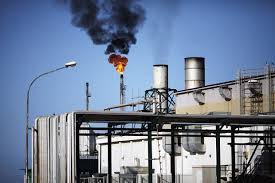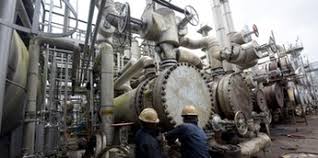The government of Ghana expects that by building a 300,000 barrel-per-day oil refinery, President Nana Akufo-Addo’s country will become the petroleum hub of the region, but detractors claim the proposal is defective.
In 2010, Ghana, the second-largest cocoa producer in the world, started producing oil.
Present output is approximately 325 million standard cubic feet of natural gas per day and about 132,000 barrels of crude oil per day.
The project, which will also feature petrochemical factories, is located in the south-west city of Jomoro.
“The project promises to be a cornerstone of our nation’s development,” stated Akufo-Addo late on Monday.
According to him, a group comprising Touchstone Capital Group Holdings, UIC Energy Ghana, China Wuhan Engineering Co., and China Construction Third Engineering Bureau Co. will finance and build the project’s first phase, which is projected to cost $12 billion, on state-run Ghana Television (GTV).
The African Refiners and Distributors Association estimates that around 90% of the 800,000 bpd of petroleum consumed in West Africa are imported.
Laptops 1000A deal struck in June 2018 states that the petroleum hub seeks to supply the region with adequate refined and by-products by 2036.
But not everyone finds the plan convincing.
The consortium behind the project, according to Bright Simons, a vice president at the Accra-based think tank IMANI Africa, “is not primed for investment (and) the project has no bankable business plan.”
“Our position is that this is a speculative attempt to grab a landbank for cheap,” he explained.
Some of the owners of the 20,000 acres that the centre is supposed to be built on have protested the plans, asking that the project’s footprint be lowered to 5,000 acres.
A prominent partner at the legal company defending some of the impacted farmer cooperatives, Oliver Barker-Vormawor, declared that his clients would not resign.
“The abrasive manner that the government is proceeding discounts valid concerns around the social and environmental impact of the project, the livelihoods at risk by the displacement of farmers and the unsettled questions of ownership and community land rights.”




















